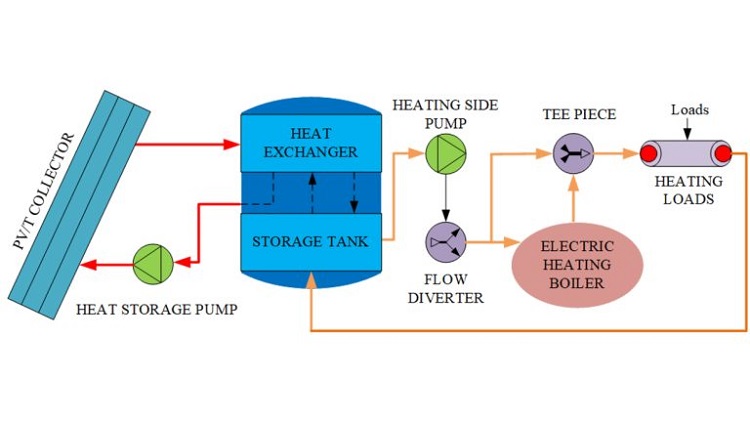S. Himmelstein | July 11, 2022
 Flow diagram of solar-biomass hybrid system Source: Gaoyang Hou and Lei Xu/ Northwest A&F University
Flow diagram of solar-biomass hybrid system Source: Gaoyang Hou and Lei Xu/ Northwest A&F University
A cost-effective and sustainable home heating solution proposed by researchers in the U.S. and China pairs solar photovoltaics (PV) with biofuel technology.
Computer simulations of the solar-biomass hybrid system considered the efficiency of PV panels, thermal collectors, biomass generators and heat exchanger-based thermal storage capacity in a distributed multi-generation (DMG) system. The feasibility of deploying this decentralized hybrid system to supply the wintertime heating needs of a single-story cottage in northwest China, where temperatures can fall below -20° C, was analyzed.
Of the total energy input to the DMG system, the PV/thermal collector generated 52% of the electrical energy and captured 8% of the available thermal energy. Biomass generated the remaining 40% of the electricity needed to heat the house.
“We demonstrate how this hybrid system provides a cleaner, more energy-efficient heating solution than fossil fuel in single-family homes,” explained the researchers. “The system would be convenient in rural communities, where farms have large amounts of biomass in the form of agricultural waste that can be combined with solar power to close the urban-rural electricity gap and help the environment in the process.”
The study conducted by researchers from Northwest A&F University (China), Pennsylvania State University and University of Alabama is published in the Journal of Renewable and Sustainable Energy.
